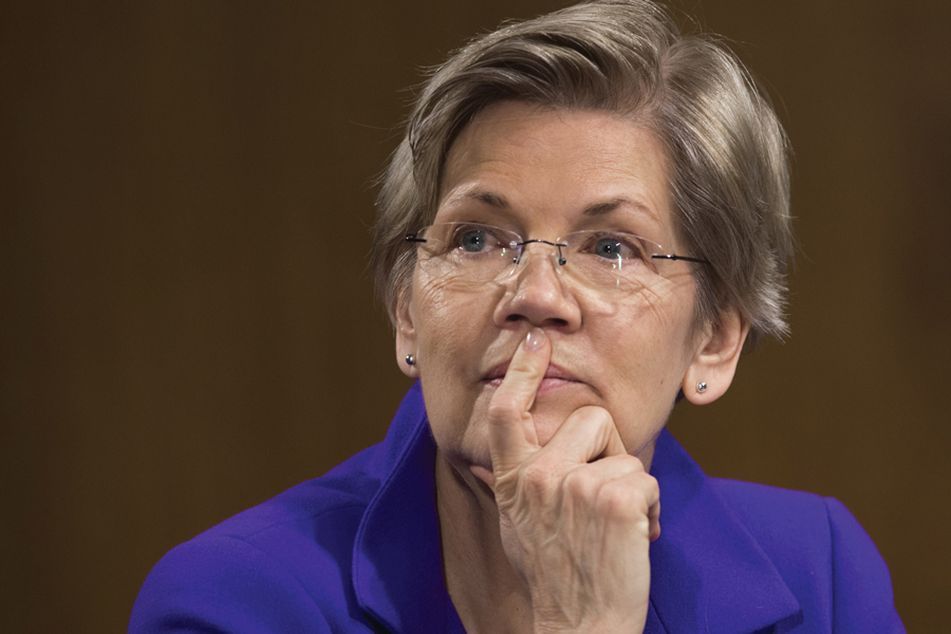Richest would have lost half their wealth under Warren’s tax plan

Study looks at how the Massachusetts senator's plan would have affected the wealthiest if it had been in place since 1982
Billionaires such as Jeff Bezos, Bill Gates and Warren Buffett could have collectively lost hundreds of billions of dollars in net worth over decades if presidential candidate Elizabeth Warren’s wealth tax plan had been in effect — and they had done nothing to avoid it.
That’s according to calculations in a new paper by two French economists who helped Ms. Warren devise the proposed tax on the wealthiest Americans.
The top 15 richest Americans would have seen their net worth decline by more than half to $433.9 billion had Ms. Warren’s plan been in place since 1982, according to the paper by University of California, Berkeley professors Emmanuel Saez and Gabriel Zucman.
Despite relying on some hypothetical assumptions, the calculations highlight what could be a key question in Thursday’s debate among Democratic Party presidential contenders: What should the U.S. do to address yawning income and wealth inequality?
[Recommended video: Ed Slott: IRA rollover decision is a high value opportunity for advisers]
The authors’ figures don’t take into account any steps billionaires might have taken to reduce their exposure to the tax, including saving less or giving more money away. Instead, the paper assumes that rich Americans effectively did the opposite: they reduced, rather than increased, charitable giving and consumption, in proportion to the wealth lost through the tax.
For Amazon.com founder Jeff Bezos, his estimated fortune of $160 billion in 2018, before his divorce settlement this year, would have been reduced to $86.8 billion. Microsoft founder Bill Gates would have seen his shrink to $36.4 billion from an estimated $97 billion.
The calculations underscore how a wealth tax of just a few percentage points might erode fortunes over time and presumably reduce wealth inequality.
Besides the top five richest Americans, the paper also analyzed how Ms. Warren’s proposed tax would impact the fortunes of other wealthy individuals, including Charles Koch; Walmart heirs Jim, Rob and Alice Walton; and Michael Bloomberg, founder of Bloomberg News parent Bloomberg.
Billionaires of more recent vintage on the list experience smaller proportional declines in net worth because they would have been subject to the tax for shorter periods of time.
The authors’ assessment of how the wealthy would fare under Ms. Warren’s tax plan is just a small part of a wide-ranging paper laying out the rationale for such a proposal and setting out how it might work.
Tax plan
Ms. Warren, a Massachusetts senator, has proposed that the wealthiest 75,000 households pay an annual tax of 2% on each dollar of their net worth above $50 million. It would rise to 3% on every dollar above $1 billion. She has said this would combat rising inequality.
Critics have charged that the tax would be hard to administer and easy to avoid. They’ve also questioned its constitutionality.
Mr. Zucman and Mr. Saez used Forbes magazine estimates of individuals’ 2018 wealth as a baseline for comparison in their analysis on the impact of the Warren tax. The magazine has tracked the net worth of the rich since 1982.
Some of the wealthiest Americans, including Mr. Buffett and Mr. Gates, have said people like themselves should be required to pay more in taxes.
Billionaire investor George Soros, heiress Abigail Disney and 17 other wealthy individuals published an open letter in June in support of Ms. Warren’s wealth tax and said lawmakers have a moral responsibility to levy higher taxes on the rich.
Both Mr. Saez and Mr. Zucman have have conducted research with Thomas Piketty, whose best-selling book put a spotlight on income and wealth disparities.
[More: Democrats have a game plan for taxing the rich more]
Learn more about reprints and licensing for this article.








